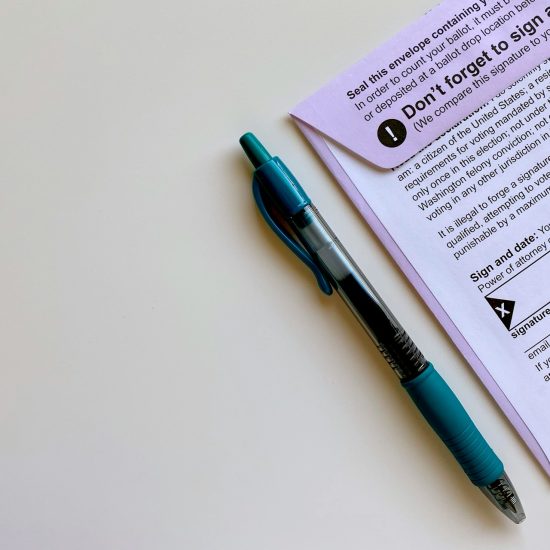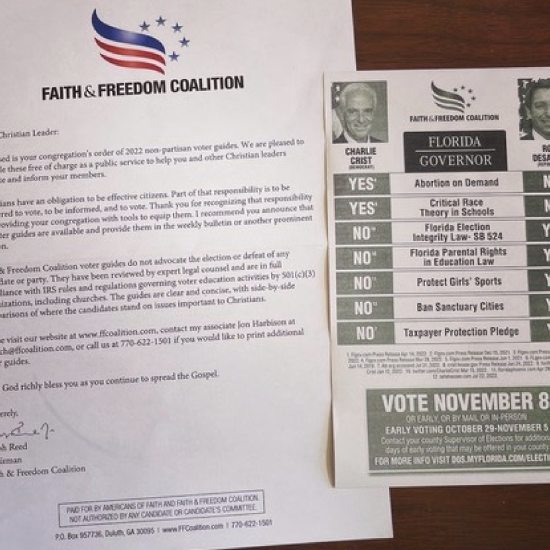In case you haven’t noticed, we’re coming down the final stretch of an election year. (Obviously, you’ve noticed!)
 Bill WebbSo what’s a voter to do? To once again state the obvious, vote! Participate in the process and affirm you are exercising the right — if not the privilege — to cast a ballot that will help determine who will have the privilege to lead, from the president on down, when the ballot-box dust clears. And vote on ballot referendums that relate to moral or justice issues of the day or taxation or whatever.
Bill WebbSo what’s a voter to do? To once again state the obvious, vote! Participate in the process and affirm you are exercising the right — if not the privilege — to cast a ballot that will help determine who will have the privilege to lead, from the president on down, when the ballot-box dust clears. And vote on ballot referendums that relate to moral or justice issues of the day or taxation or whatever.
Some among the electorate are reeling in part because their choices during primary voting didn’t make it out of the opening round, so to speak. We all have had the experience of seeing one of our favorites in a political race lose, whether in a primary or general election. The U.S. system is based on majority rule, and that can leave some of us smarting for a few or several years.
True, it doesn’t help when both candidates for president have high disapproval ratings and for different reasons. Don’t we all long for the perfect political candidate so we could have a perfect President, perfect governor, perfect senator or representative — or even a perfect dogcatcher!
Alas, a vote has never been cast for a perfect candidate of any kind. And we don’t have any perfect voters either.
We citizens simply have to do our best. And that means we can’t be passive. We also have to avoid being gullible as much as we can. Negative political advertising at just about every level is slick, and usually misleading, sometimes with only a kernel of truth at the core and sometimes even less.
The first rule of thumb is not to make voting decisions based solely on what a candidate says about himself/herself or his/her opponent in a TV ad — or in an ad of any kind. Don’t let a controlled message control you and your vote.
If a candidate has previous experience as a public servant, check past performance and seek a full record of it. Get an idea about how this candidate might handle herself if successfully elected to whatever position is being sought.
Has the candidate been truthful and faithful to campaign promises in the past once elected? Check for evidence of credibility and character based on actual performance. Character still matters, as it well should.
Broaden your criteria for showing your support for anyone. A vote based on a single issue — even a pet issue — is simply not adequate, even though many voters and groups of voters are tempted to reduce their responsibility and vote based on one simple, easy issue. Legislators must make decisions on many issues. Choosing one who will simply vote my preference on one of them may well disappoint me on 10 other important matters.
Don’t rely on someone’s Facebook page or tweet for your decision-making. Simple sound bytes are worthless and tend to influence people too lazy to do their own critical thinking. Be a smart and serious citizen/voter.
By all means vote! And do not take the privilege lightly, lest you squander it. Pray for guidance and wisdom in the days leading up to the election.
Bill Webb is editor of Word & Way.






